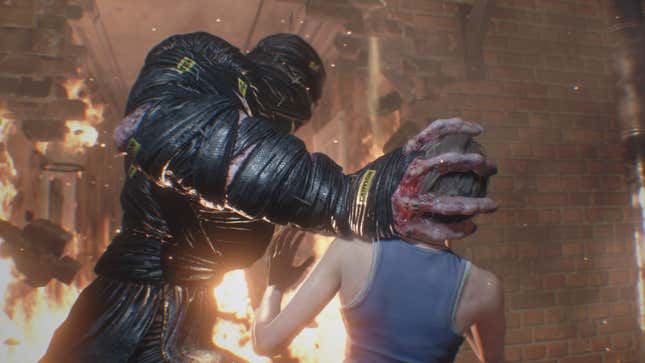
I can’t believe the year is almost over. 2020 has felt interminable. Between work, taking care of my kid, a new book release, various writing assignments, and all that life has thrown at me, my free time has been really limited. I usually only get a chance to play games after my kid falls asleep and because of that, I looked for different gaming experiences than I normally do (I think in past years, long epic journeys with tragically poignant stories i.e. JRPGs, resonated most with me). This year? I wanted a mental break from the non-stop barrage of everyday life. These were the five games that I enjoyed the most.
Resident Evil 3
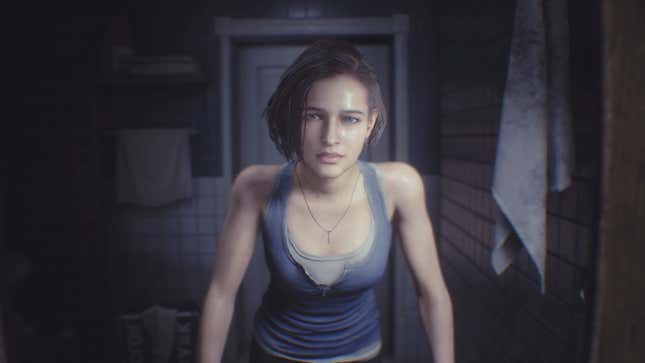
The original Resident Evil 3 was my least favorite game in the series. The remake has quickly become one of my favorites. The ultimate adrenaline rush, this is a zombie-infested roller coaster that never loses track of its purpose which is to try and kill Jill anytime it can. From the first moment that Nemesis slams through the wall of Jill’s apartment while she’s on the phone, to the relentless pursuit the monster gives through Raccoon City, this is the zombie apocalypse distilled to its most basic directive; survive by any means necessary. In other entries in the series, there’s usually some grim commentary on human nature and its insatiably inexplicable drive towards self-destruction; don’t humans already have enough ways to kill each other without developing bioweapons? The original Resident Evil 3 did away with all of that and concentrated on the action, which is why I’d felt disappointed the first time around. This time though, immersing myself in a world gone to hell, I found Resident Evil 3 to be escapism at its best. Yes, the world is wracked by a terrible disease and all the corrupt leaders of the world won’t do anything to help. But there’s something immensely cathartic about the fact that Jill can only rely on herself, and her guns, to blaze her way out.
Streets of Rage 4
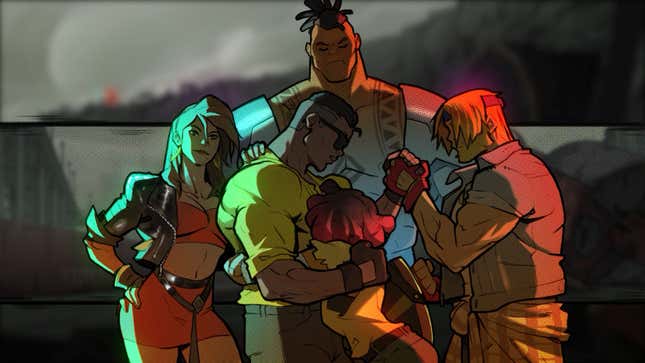
A brilliant new entry into one of the best brawling series on consoles, Streets of Rage 4 is justice delivered one fist at a time as the party fights against corruption in the form of a new enemy, the Y Twins. Their nefarious plot involves using music to brainwash the masses (they could have just used social media!). The controls are slick, the fighting is freeflowing, and there’s a sublime rhythm to the beat em’ up that feels like a natural evolution of the past games. Little details caught my attention, like the arcades with the Bare Knuckle logos on them (the Japanese name for Streets of Rage), and the way one of the bosses calls for police support which arrives with a driver and a bazooka in a nod to the first Streets of Rage. Has it really been thirty since the first game came out? I still remember loading the cartridge into my Sega Genesis and fighting through a flood of enemy thugs. The best sequels tug at the nostalgia strings while punching their way through with new moves. Streets of Rage 4 does both nearly perfectly.
Ys: Memories of Celceta
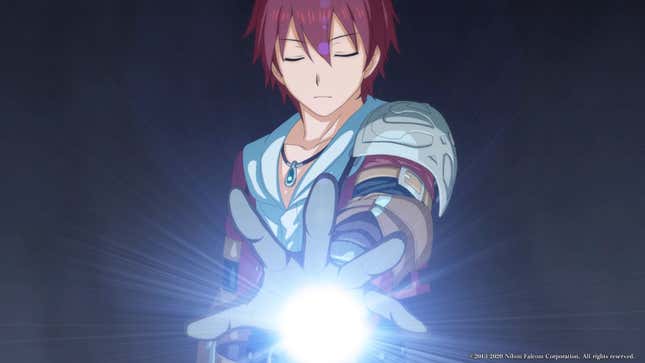
Thanks to Fahey, I’ve really been enjoying the Ys series. Ys VIII is incredible, but I’d only played two other games in the series and I was curious what the rest were like. When I heard the fourth game in the series had been ported over from the Vita earlier this year, I had to play it. I was glad to find Memories of Celceta has the same fast-paced action RPG combat of the eighth game, albeit in a new setting. This time, Adol has lost his memories and he has to go on an excavation in the eponymous Celceta to try to figure out what happened to him. Like the eighth entry in the series, Memories of Celceta is a whole lot of fun, thanks in large part to the memorable cast of characters. As a port, the graphics are not great, but it’s clear this was where a lot of the ideas fleshed out in VIII originally took root. The game mechanics are addictive and the controller is hard to put down once you begin fighting the enemy hordes. As a huge bonus, the game (at least the Timeless Adventurer Edition which was the only one available that I could buy) actually comes with a manual, music CD, and illustration cards. In a generation where manuals have mostly been relegated to digital text, I was pleasantly surprised to be able to hold a physical manual again. Thank you Nihon Falcom.
Murder By Numbers
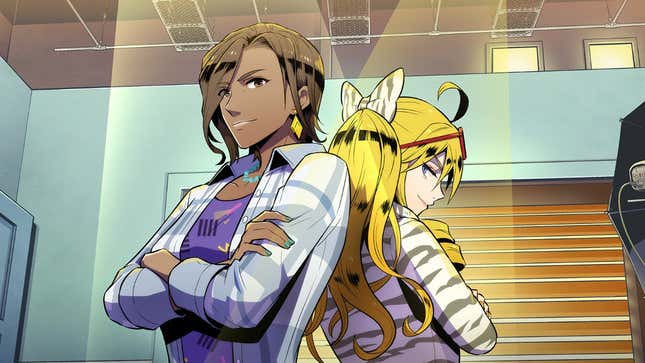
Last year, I interviewed the composer of Ghost Trick, Masakazu Sugimori at Kotaku, which was a real treat as I listen to Ghost Trick’s OST all the time. We’ve communicated several times online since then and I was really excited to hear he was working on an all new game called Murder By Numbers. I had no idea what to expect, but picked it up when it released earlier this year, and I was pleasantly surprised to get a mystery game that incorporated a whole lot of picross. I’ve never played picross before, so it was a new experience to me, carving out images by deciphering clues tied to numbers. But there’s an elegance in this fusion that somehow creates one of the most interesting games of 2020. Honor Mizrahi and her robotic partner, SCOUT, make for an unlikely duo. As the mystery thickens, I found myself compelled, both by the characters and the tricky nonagrams. Who knew numbers and murder could be so addictive?
Yakuza: Like A Dragon
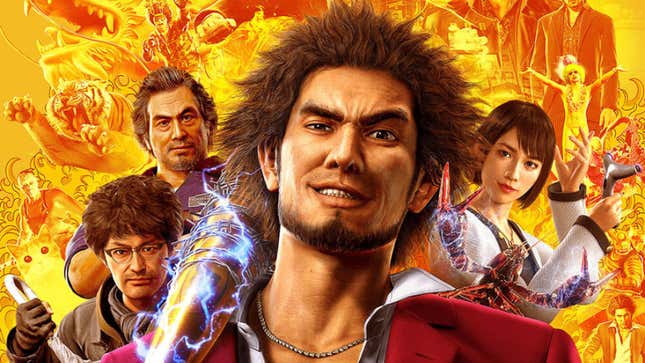
I was originally supposed to go to Japan this year for the release of the foreign version of my latest novel. I’ve only been once and we were looking forward to another visit. Obviously, everything changed with travel no longer being possible. But because I’d been so looking forward to going, the latest Yakuza struck a chord for me. It was like I was vicariously there. True, I’m not a gangster and I don’t engage in turn-based battles with strangers to gain experience points and street cred. But the latest entry in the series had me hooked with its eccentric characters and a complex plot that involves a guy taking a rap for a crime he didn’t commit, a huge rivalry between Yakuza families, and a conspiracy in which it’s not clear who you can trust. I’ve gotten into a lot of trouble for arguing with cinephiles how I like certain Yakuza films even more than the Godfather trilogy (incredible as it is), and I’d go so far as to include the games as well. There is nothing quite like a Yakuza game, and in this case, nothing Like A Dragon either.

